#sannes
Text
I WOKE up like this
sorry i am a bit retarred

3 notes
·
View notes
Text
The Neurodivergent Writer’s Guide to Fun and Productivity
(Even when life beats you down)
Look, I’m a mom, I have ADHD, I’m a spoonie. To say that I don’t have heaps of energy to spare and I struggle with consistency is an understatement. For years, I tried to write consistently, but I couldn’t manage to keep up with habits I built and deadlines I set.
So fuck neurodivergent guides on building habits, fuck “eat the frog first”, fuck “it’s all in the grind”, and fuck “you just need time management”—here is how I manage to write often and a lot.
Focus on having fun, not on the outcome
This was the groundwork I had to lay before I could even start my streak. At an online writing conference, someone said: “If you push yourself and meet your goals, and you publish your book, but you haven’t enjoyed the process… What’s the point?” and hoo boy, that question hit me like a truck.
I was so caught up in the narrative of “You’ve got to show up for what’s important” and “Push through if you really want to get it done”. For a few years, I used to read all these productivity books about grinding your way to success, and along the way I started using the same language as they did. And I notice a lot of you do so, too.
But your brain doesn’t like to grind. No-one’s brain does, and especially no neurodivergent brain. If having to write gives you stress or if you put pressure on yourself for not writing (enough), your brain’s going to say: “Huh. Writing gives us stress, we’re going to try to avoid it in the future.”
So before I could even try to write regularly, I needed to teach my brain once again that writing is fun. I switched from countable goals like words or time to non-countable goals like “fun” and “flow”.
Rewire my brain: writing is fun and I’m good at it
I used everything I knew about neuroscience, psychology, and social sciences. These are some of the things I did before and during a writing session. Usually not all at once, and after a while I didn’t need these strategies anymore, although I sometimes go back to them when necessary.
I journalled all the negative thoughts I had around writing and try to reason them away, using arguments I knew in my heart were true. (The last part is the crux.) Imagine being supportive to a writer friend with crippling insecurities, only the friend is you.
Not setting any goals didn’t work for me—I still nurtured unwanted expectations. So I did set goals, but made them non-countable, like “have fun”, “get in the flow”, or “write”. Did I write? Yes. Success! Your brain doesn’t actually care about how high the goal is, it cares about meeting whatever goal you set.
I didn’t even track how many words I wrote. Not relevant.
I set an alarm for a short time (like 10 minutes) and forbade myself to exceed that time. The idea was that if I write until I run out of mojo, my brain learns that writing drains the mojo. If I write for 10 minutes and have fun, my brain learns that writing is fun and wants to do it again.
Reinforce the fact that writing makes you happy by rewarding your brain immediately afterwards. You know what works best for you: a walk, a golden sticker, chocolate, cuddle your dog, whatever makes you happy.
I conditioned myself to associate writing with specific stimuli: that album, that smell, that tea, that place. Any stimulus can work, so pick one you like. I consciously chose several stimuli so I could switch them up, and the conditioning stays active as long as I don’t muddle it with other associations.
Use a ritual to signal to your brain that Writing Time is about to begin to get into the zone easier and faster. I guess this is a kind of conditioning as well? Meditation, music, lighting a candle… Pick your stimulus and stick with it.
Specifically for rewiring my brain, I started a new WIP that had no emotional connotations attached to it, nor any pressure to get finished or, heaven forbid, meet quality norms. I don’t think these techniques above would have worked as well if I had applied them on writing my novel.
It wasn’t until I could confidently say I enjoyed writing again, that I could start building up a consistent habit. No more pushing myself.
I lowered my definition for success
When I say that nowadays I write every day, that’s literally it. I don’t set out to write 1,000 or 500 or 10 words every day (tried it, failed to keep up with it every time)—the only marker for success when it comes to my streak is to write at least one word, even on the days when my brain goes “naaahhh”. On those days, it suffices to send myself a text with a few keywords or a snippet. It’s not “success on a technicality (derogatory)”, because most of those snippets and ideas get used in actual stories later. And if they don’t, they don’t. It’s still writing. No writing is ever wasted.
A side note on high expectations, imposter syndrome, and perfectionism
Obviously, “Setting a ridiculously low goal” isn’t something I invented. I actually got it from those productivity books, only I never got it to work. I used to tell myself: “It’s okay if I don’t write for an hour, because my goal is to write for 20 minutes and if I happen to keep going for, say, an hour, that’s a bonus.” Right? So I set the goal for 20 minutes, wrote for 35 minutes, and instead of feeling like I exceeded my goal, I felt disappointed because apparently I was still hoping for the bonus scenario to happen. I didn’t know how to set a goal so low and believe it.
I think the trick to making it work this time lies more in the groundwork of training my brain to enjoy writing again than in the fact that my daily goal is ridiculously low. I believe I’m a writer, because I prove it to myself every day. Every success I hit reinforces the idea that I’m a writer. It’s an extra ward against imposter syndrome.
Knowing that I can still come up with a few lines of dialogue on the Really Bad Days—days when I struggle to brush my teeth, the day when I had a panic attack in the supermarket, or the day my kid got hit by a car—teaches me that I can write on the mere Bad-ish Days.
The more I do it, the more I do it
The irony is that setting a ridiculously low goal almost immediately led to writing more and more often. The most difficult step is to start a new habit. After just a few weeks, I noticed that I needed less time and energy to get into the zone. I no longer needed all the strategies I listed above.
Another perk I noticed, was an increased writing speed. After just a few months of writing every day, my average speed went from 600 words per hour to 1,500 wph, regularly exceeding 2,000 wph without any loss of quality.
Talking about quality: I could see myself becoming a better writer with every passing month. Writing better dialogue, interiority, chemistry, humour, descriptions, whatever: they all improved noticeably, and I wasn’t a bad writer to begin with.
The increased speed means I get more done with the same amount of energy spent. I used to write around 2,000-5,000 words per month, some months none at all. Nowadays I effortlessly write 30,000 words per month. I didn’t set out to write more, it’s just a nice perk.
Look, I’m not saying you should write every day if it doesn’t work for you. My point is: the more often you write, the easier it will be.
No pressure
Yes, I’m still working on my novel, but I’m not racing through it. I produce two or three chapters per month, and the rest of my time goes to short stories my brain keeps projecting on the inside of my eyelids when I’m trying to sleep. I might as well write them down, right?
These short stories started out as self-indulgence, and even now that I take them more seriously, they are still just for me. I don’t intend to ever publish them, no-one will ever read them, they can suck if they suck. The unintended consequence was that my short stories are some of my best writing, because there’s no pressure, it’s pure fun.
Does it make sense to spend, say, 90% of my output on stories no-one else will ever read? Wouldn’t it be better to spend all that creative energy and time on my novel? Well, yes. If you find the magic trick, let me know, because I haven’t found it yet. The short stories don’t cannibalize on the novel, because they require different mindsets. If I stopped writing the short stories, I wouldn’t produce more chapters. (I tried. Maybe in the future? Fingers crossed.)
Don’t wait for inspiration to hit
There’s a quote by Picasso: “Inspiration hits, but it has to find you working.” I strongly agree. Writing is not some mystical, muse-y gift, it’s a skill and inspiration does exist, but usually it’s brought on by doing the work. So just get started and inspiration will come to you.
Accountability and community
Having social factors in your toolbox is invaluable. I have an offline writing friend I take long walks with, I host a monthly writing club on Discord, and I have another group on Discord that holds me accountable every day. They all motivate me in different ways and it’s such a nice thing to share my successes with people who truly understand how hard it can be.
The productivity books taught me that if you want to make a big change in your life or attitude, surrounding yourself with people who already embody your ideal or your goal huuuugely helps. The fact that I have these productive people around me who also prioritize writing, makes it easier for me to stick to my own priorities.
Your toolbox
The idea is to have several techniques at your disposal to help you stay consistent. Don’t put all your eggs in one basket by focussing on just one technique. Keep all of them close, and if one stops working or doesn’t inspire you today, pivot and pick another one.
After a while, most “tools” run in the background once they are established. Things like surrounding myself with my writing friends, keeping up with my daily streak, and listening to the album I conditioned myself with don’t require any energy, and they still remain hugely beneficial.
Do you have any other techniques? I’d love to hear about them!
I hope this was useful. Happy writing!
#writing advice#writing#novel writing#creative writing#spoonie#spoonie writing#neurodivergent#adhd#how to tell me a story#sanne
2K notes
·
View notes
Text




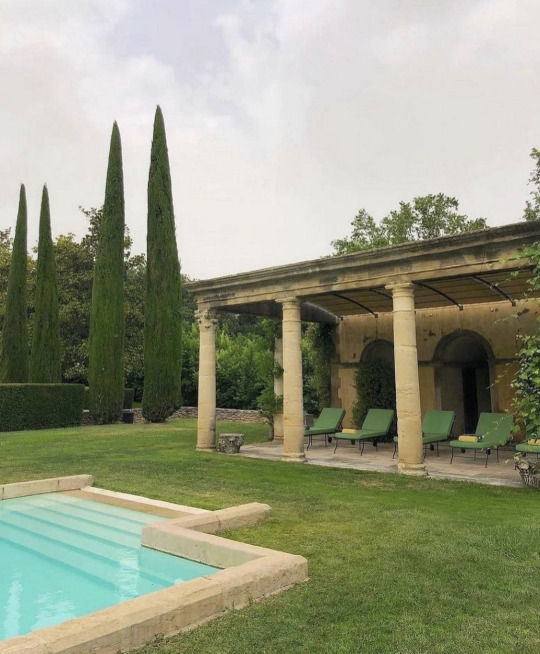



The Château de Sannes, France
#chateau de sannes#france#Europe#travel#garden#swimming pool#relaxing#destinations#courtyard#beautiful#vacation#architecture#fountain#elegant#luxury#sannes#curated
1 note
·
View note
Note
Sunnie!! I am insane over this concept of Jason marveling over how sensitive his partner is... and now I'm thinking about Jason being feral when he returns from patrol and NEEDING to bury his face between their legs. All he wants is to make them feel good. Oh also, breastplay. I know in my heart he likes his mouth occupied <3
Yes! Yes! Like Jason loves fucking his partner, that’s a given. But as soon as he finds out just how sensitive they are? Well his new favourite place is with his head buried between their thighs seeing how many times he can make them come on his tongue, then his fingers, and only then his cock. (He’ll mix up the order sometimes but he’s pretty set in his routine). Also? When your thighs are wrapped around his ears and he can only taste you, when his fingers are occupied with curling just the way you like and pinning you down so you stop squirming too much, Jason can block out the whole world. It’s a particularly handy trick when patrol doesn’t go so well and all he wants is to block out the world by drowning himself in you. On those nights he likes to make it a competition to see just how many more times than last time he can make you come.
Jason has eating you out down to an exact science. He knows when to give you flat broad strokes of his tongue and exactly how much suction on your clit sends you over the edge. How many fingers to give you before the stretch gets overwhelming and he can feel you spasming. Knows exactly how to walk you right up to the edge of orgasm before pulling away and making you swear in frustration. He’ll push you over the cliff’s edge so many times your thighs will be soaked with it and he’ll still know exactly how to keep you begging for more. When your thighs are trembling and you’re riding that knife’s edge of overstimulation and pleasure, that’s when he knows you’re almost ready for his cock. He won’t give it to you yet though, wants to wait until he’s got you pliant and begging to be fucked even though you were squealing about it being all too much moments ago.
No, what he does next is become gentle. Moves up your body to mouth at your breasts. His chin is obscenely wet, smears of your slick making your breasts shine from where he devours them. Takes his time with biting and sucking at each breast, catching a nipple between his teeth before soothing the sting with a drag of his tongue. Kneading the other breast with a large scarred hand so it doesn’t feel lonely. All the while he’s sliding his cock through the mess you’ve made between your thighs, the tip just catching but not going in any further. Slow maddening strokes a background to the attention he’s paying your chest but driving you mad all the same.
Finally, finally when you’re coming apart at the seams pleading with him to finally make you full, does he relent. Sucking hickies into the soft flesh of your breast he’ll slide in. And because he knows you so well, he’ll have you right where he wants you. Uncertain of if you want to pull him closer or push him away. The scrape of teeth and the pleasure pain of being stretched full almost too much to process. Punched out breaths turning to high pitched whines as you cling to him, cradle his head to your chest and let him take control of you pleasure until there’s stars behind your eyelids and you can’t feel anything beyond Jason.
Jason takes a lot of pleasure in just how sensitive you are after you’ve come for him too. He enjoys how even the gentlest featherlight stroke of your thigh sets you twitching. How the aloe gel he rubs into your sore breasts makes you murmur and squirm at the sensation. Even when the main event is over, there’s a thousand ways for Jason to play with your sensitivity and he’s not in the habit of denying himself your pleasure.
#got a bit carried away with this one 😅#but yeah jason would be the type that just needs something in his mouth#anyway we can go insane over this together sanne#jason todd x reader#jason todd smut#jason todd x you#jason todd x y/n#jason todd imagine#jason todd fic#jason todd fanfiction#red hood x reader#red hood x you#sunnie writes 🌻#sweet words for sunnie
644 notes
·
View notes
Photo
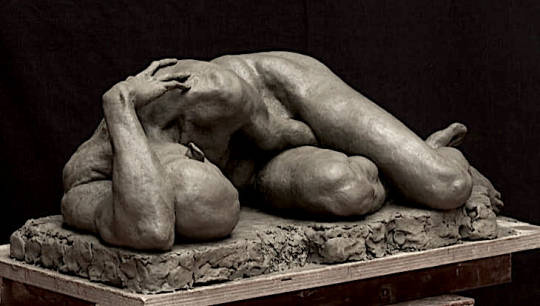

Sanne van Tongeren (*1978)
593 notes
·
View notes
Text
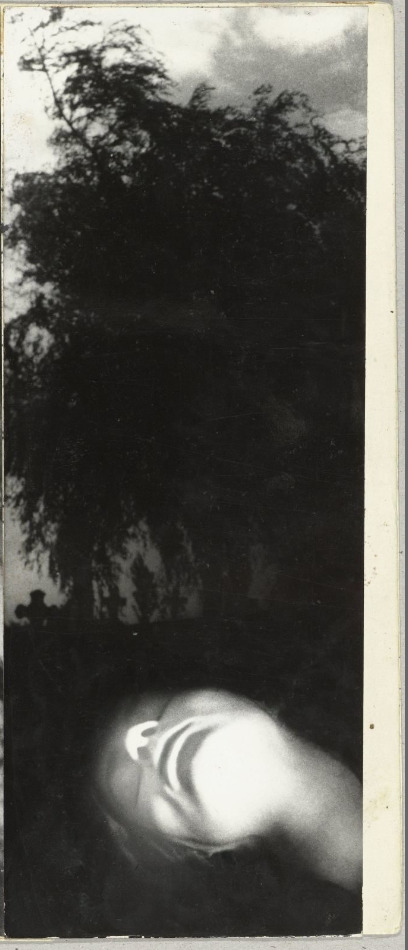
Sanne Sannes
The head of a reclining woman, with the silhouette of a cemetery in the background, c. 1964 - 1967
767 notes
·
View notes
Text
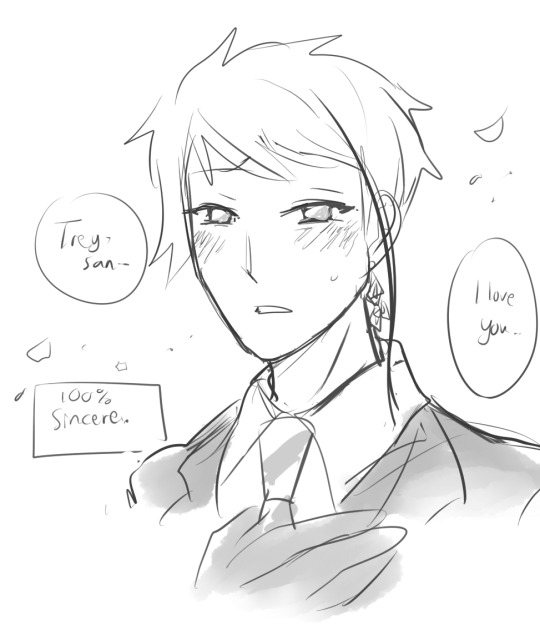
their confession dynamic of all time
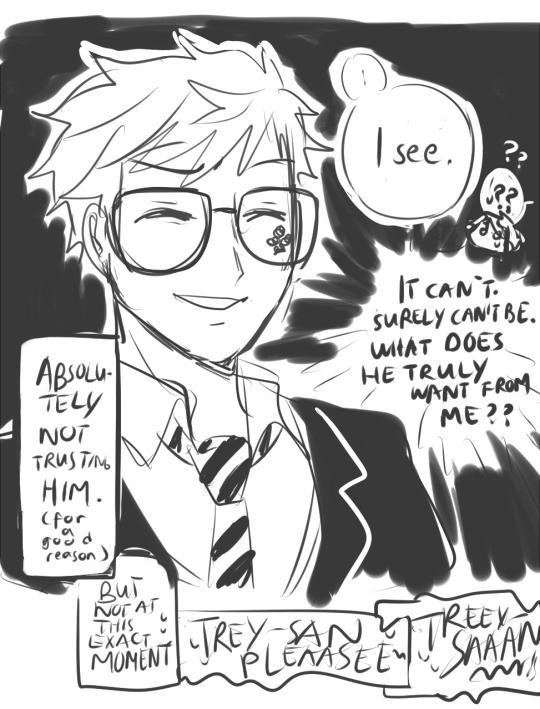
#fshfsdhsdhdj TREYY SANN NOOOOO............!!!! me everytime this is what fanartists chose it to happen fhsdshd#BUT THEN WHEN THEY PUT JADE IN TURMOIL & DESPAIR over THIS IT'S TOO FUNNY FSHDSHDH#twisted wonderland#twst#treyjade#trey clover#jade leech#fanart#they gave me good laugh everytime fshd#that one strip when floyd goes huhu TT TT trey be like oh no what's wrong (actually caring)#and when jade goes huhu TT TT trey be lik e what is i t this time ? ? (ABSOLUTELY WON'T FALL ON HIS CROCODILE TEARS FSHDHSDFSHDSH)#HE KNOWS THEM TOO WELL (yes we know azul gave him hints already fhsdh)#this is why all jades who get to go out with trey are so HAPPY#THEY PASS HIS TRUST TEST FSHDSHDSH#BIG WALL RIGHT THERE
534 notes
·
View notes
Text
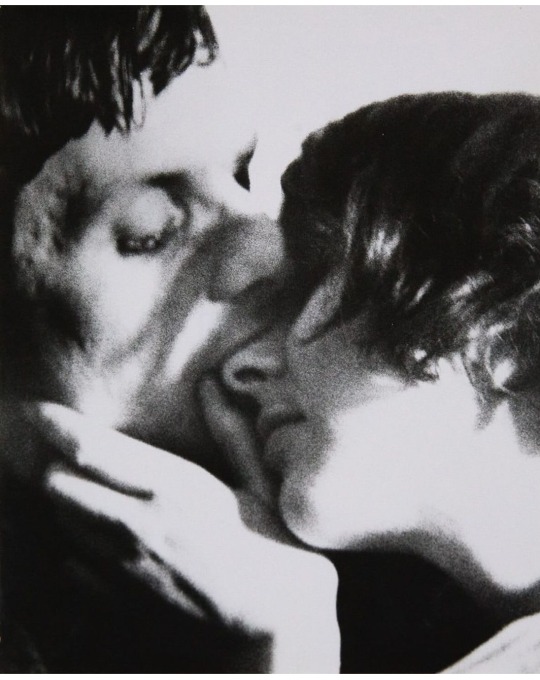
Les amoreaux, 1967
Sanne Sannes
295 notes
·
View notes
Text
If I had a nickel for every time the Olympic gold medalist on beam had an identical twin who was also an Olympic gymnast, I’d have two nickels. Which isn’t a lot, but it’s weird that it happened twice.
100 notes
·
View notes
Text
A longread on writing comedy
This is what I do to research writing comedy:
What helped me most was analyzing a lot of jokes: "It's funny. Why is it funny? How does this joke work?" Usually it's something that subverses the expectations in a specific way or an unexpected collision of two things. (Like a pun is a collision of sound and meaning.) For my analysis, I wonder: "What is the expectation after the set-up? Why do I have this expectation? How does the pay-off subverse the expectation? Why does it still make sense in relation to the set-up?"
For example: I unleashed this kind of analysis on the movie George of the Jungle. It has a surprisingly high hit rate, I think around three jokes per minute in the first one third of the movie, and it still manages to get the story going and the characters introduced. I’ve mentioned this before, but I don’t think I gave examples, and you know I’m all about the teaching.
I found at least 17 types. Heads up, this is going to be a longread.
Type 1: Puns
Narrator: “When they finally beheld the mighty Ape Mountain…”
[They see a mountain shaped like a gorilla head.]
Narrator, cont’d: “… they reacted with awe.”
All: “Aww.”
Narrator: “I said ‘awe”. A-W-E.”
All: “Ooh!”
Narrator: “That’s better.”

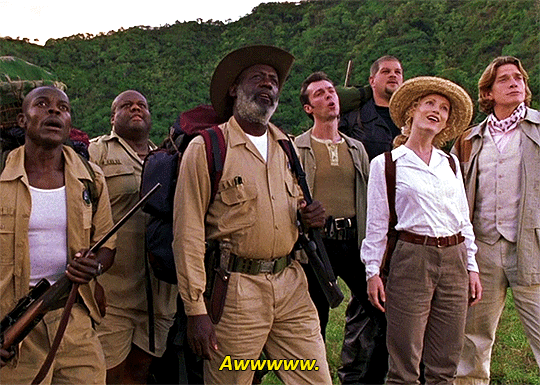
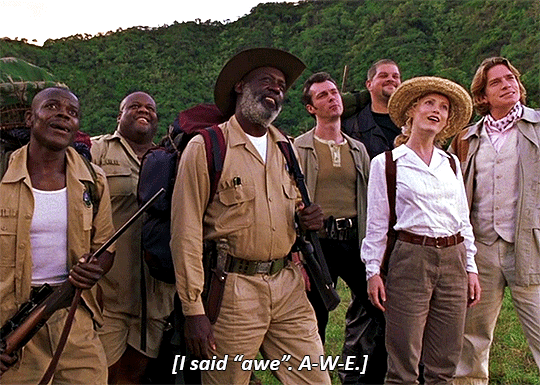
Explanation:
The pun lies in the fact that “awe” and “aww” sound the same.
There is a visual type of comedy as well that we can’t effectively reproduce in writing: the mountain is shaped like a gorilla head.
BTW: the narrator defies genre expectations by interacting with the characters, and the characters defy genre expectations by being able to hear the narrator.
Type 2: Tone of voice
Narrator, about the main characters: “Scraped and boo-booed, they searched high and low.
Explanation:
“Boo-booed” is a children’s word, not the tone you would use for a hero. Compare “tummy” and “stomach”.
Type 3: Defying genre expectations
[The guide falls off a rope bridge into a deep chasm.]
Narrator: “Don’t worry—nobody dies in this story. They just get really big boo-boos.”
Explanation:
The narrator is breaking the fourth wall.
Again: tone of voice with the “boo-boos”.
Contrast between the boo-boo and the injuries one usually suffers after falling into a deep chasm.
Type 4: Not defying genre expectations
[A lion appears from the bushes. A baby monkey makes a sound like “uh-oh”.]
[The baby monkey does the Tarzan call and bangs its chest.]
[The lion flees.]
[The monkey giggles.]
[The monkey gives George a thumbs up.]
[From the bushes, the lion winks at George. George winks back.]
Explanation:
Expectation: the lion is a danger to the baby monkey and George will need to fight it to save the monkey.
Defying expectations: the monkey and the lion are in on the plan.
Not defying genre expectations: George of the Jungle is clearly based on Tarzan. George doesn’t refer to that fact, but the monkey does, by doing the Tarzan call and banging its chest.
Improbable: monkeys who giggle and give thumbs up.
Impossible: lions who wink.
Type 5: Contrast
Narrator: “Meanwhile, 43 vines away, George’s kingdom is being threatened by a terrifying intruder.”
[We see the adorable Leslie Mann, who plays Ursula, smiling and talking to the camera.]
Ursula: “Hi! It’s me again!”
Explanation:
Contrast between what the narrator says and what we see.
The narrator isn’t lying. He refers to Lyle and the poachers who will be introduced in this scene.
There’s also humor in the phrase “43 vines away”, because of the overt specificity and because a vine is not a measure of distance.
Type 6: Oblivious character
[Lyle takes a Polaroid picture of one of the guides.]
Lyle: “Do you like it? Magic picture. Yet another gift from America. Here you go. You’re welcome.”
[The guide replies in Swahili. There is no translation in the subtitles.]
[All the guides laugh.]
[The guide continues in Swahili. Only the last few words are in English: “35 mm.” The guide takes his own camera and snaps a picture of Lyle.]
[All the guides and Ursula laugh.]
Lyle, not amused: “Translation, please.”
Other guide: “He says he likes your magic pictures, but he prefers the resolution of the Leica 35 mm transparencies.”
[Everyone but Lyle laughs.]
Other guide, cont'd: “He also says your lens is dirty, but he has the equipment to clean it for you.”
Explanation:
Lyle doesn’t understand Swahili, while the guides understand everything Lyle says to them in English.
The fact that Ursula, Lyle's fianceé, understands Swahili and laughs along with the guides, is adds contrast to his obliviousness.
Lyle is the butt of the joke. He humiliates the guides and now he’s humiliated on his own turf while the guides don’t stoop down to his level.
This joke is threefold: 1. The set-up: Lyle is the arrogant asshole who thinks he’ll show the locals about technological development. 2. The guide is not only not impressed, he knows Polaroid and has a camera of his own, and is knowledgeable. 3. And he demonstrates his superiority in a (more or less) polite way.
Type 7: Slapstick
[George is swinging on the vines.]
Narrator: “He is swift. He is strong. He is sure. He is smart.”
[George hits a tree and falls.]
Narrator, deadpan: “He is unconscious.”
Explanation:
Slapstick is another type of humor that barely translates to written fiction, when the actors behave silly, for example by falling over, hurting themselves, or others. It's often over the top. Laurel & Hardy is a well-known example of slapstick.
Type 8: Alliteration
Narrator: “The tired trekkers trudged on feverish footsies over perilous paths.”
Explanation:
If several words in each other’s vicinity start with the same letter, it’s called alliteration.
Note that "footsies" is another example of a contrast in tone of voice—it’s another children’s word.
Type 9: Improbable things
[George spins a lion over his head.]
George: “George not even trying hard.”
Explanation:
While not impossible, spinning an actual lion over one’s head is improbable and thus goes against real-world expectations.
Type 10: Impossible things
[A gorilla called Ape enters George’s tree house and scares Ursula.]
Ursula: “What does it want? What does it want?”
Ape: [points at a big book] “It wants its Physician’s Desk Reference, if you don’t mind, unless you’d rather die of dengue fever, of course.”
[Ursula faints again.]
Explanation:
Gorillas can’t talk, can’t read, and aren’t usually well-versed in curing tropical diseases.
Type 11: Breaking social norms
[Ursula is unconscious. George licks her face, clearly meaning well.]
Explanation:
In our society, it is not only considered impolite but also gross to lick the face of a stranger. The fact that George does this anyway, clearly not realizing he does something wrong, is a subversion of what we’d expect of social norms and behavior.
Type 12 and 13: Hyperbole and understatement
[Earlier, Ursula fainted when she saw Ape talk and do human things.]
[Ape is reading when he sees Ursula look at him. He panics, throws the book away, starts grunting, and bangs his chest.]
[Ursula faints again.]
Ape: “Eh.”
Explanation:
Ursula fainting again is a hyperbole: a reaction that is stronger than expected.
Ape saying “Eh.” is an understatement: a reaction less strong than expected.
Type 14: Obvious repetitions
Ursula: “… And I didn’t want my fianc—Um, this guy I was with, to worry.”
Narrator, a few moments later: “George and Ursula set out on a desperate search to find her fianc—Uh, that guy she was with.”
Type 15: Stating the obvious
[We see the guide’s hand, pointing at a really big footprint in the mud.]
Narrator: “Meanwhile, back at the really big footprint in the mud, (...)”
Explanation:
Stating the obvious can be funny because the audience doesn’t expect you to do or say this because it is so very obvious.
Type 16: Adult humor
[George watches Ursula sleep.]
George: “George having stirrings of special feelings right now.”
Ape, drily: “I see.”
George: “Good thing she same species, huh?”
Explanation:
Ape’s reply, “I see”, could be an innuendo, but it doesn’t come across as a joke (to me at least). Maybe it’s downplayed because it’s a children’s movie.
If this is an innuendo, it’s a play on words. “I see”, figuratively, for “I understand”, or literally for “Yes, I can tell from your erection.”
“Good thing she same species” because George shouldn’t have stirrings of special feelings for animals.
Type 17: Rhyme
[George is swinging on a vine.]
George: “Look, like this!”
Song: “He flies through the air with the greatest ease.”
Song, cont’d: “Our daring young man on the flying trapeze.”
[George hangs upside down from a vine.]
George: “Look, no hands.”
Song, cont’d: “His movements so grateful, all girls he could please.”
Song, cont’d: “And with love he is swinging away…”
[On the ground, gorillas frantically run back and forth with a safety net.]
Song, cont’d: “He flies through the air with the greatest of ease.”
Ursula: “George, watch out for that—”
Song, cont’d while George yelps: “Our daring young man on the—” [Song stops abruptly.]
[Thud]
[George grunts.]
Ursula: “… tree.”
Explanation:
When words end in the same sounds, we call it rhyme.
It’s physically impossible to hang from a vine with no hands.
The gorillas with the safety net imply that they expect George to fall.
Also, it’s improbable that gorillas would do this.
Slapstick: George hitting the tree.
Comedic timing: Ursula being just too late to warn George about the tree.
Song + Ursula: “Our daring young man on the—tree.” Because by then he is literally stuck to the tree.
Or throw everything at the audience, whatever.
[George has a pet elephant, Shep, who behaves like a happy doggy.]
[Shep is chewing a humongous bone.]
Narrator: “Later, they rested, while the tired tusker teethed on a… Wait a second, the dog bone is too much. Lose it.”
[The dog bone disappears.]
Narrator: “That’s better.”
[Shep whines.]
Explanation:
Improbable: Pet elephant who behaves like a doggy.
Alliteration: “tired tusker teethed”
Fourth wall: the narrator comments on the story while it is going on, and edits it.
***
Here are some other funny situations from the movie. Try to analyze what’s going on. Usually you can spot several types.
Situation 1
Narrator: “Meanwhile, at a very big and expensive waterfall set, Ursula was amazed that she was lost in the wilderness with a jungle man.”
Ursula: “And here I am, lost in the wilderness with a jungle man.”
Situation 2
Narrator: “The guides came dangerously close—”
Narrator: “That is, dangerously close to shove a coconut up in Kyle’s—”
Narrator: “Sleeping bag.”
Situation 3
Lyle: “I am the richest, handsomest, smartest guy here, so I get to go first!”
[Lyle pushes past everyone, trips over a tree stump and lands face first in a steaming pile of elephant poop.]
Lyle: “There’s an elephant here.”
Guide, while looking straight into the camera: “Bad guy falls into poop. Classical element of physical comedy.”
Guide, cont’d: “Now comes the element where we throw our heads back and laugh.”
Guide, cont’d: “Ready?”
Other guides, while also looking straight into the camera: “Ready!”
[All the guides throw their heads back and laugh.]
[Monkey laughs and points at Lyle.]
[Off-screen, other animals make laughing sounds.]
Lyle, spitting out poop: “Those are nowhere near properly digested.”
Lyle, cont’d: “In case anyone is wondering, I’m okay.”

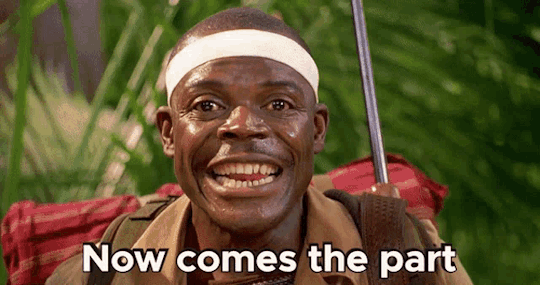
Situation 4
[Cliffhanger: it looks like Lyle has shot George from up close.]
Narrator: “Whew! Okay kids, let’s settle down and review the important information. Lyle is a big doofus. Poor George was actually shot but can’t die because, let’s face it, he’s the hero. So, the naturally concerned and preternaturally wealthy Ursula Stanhope whisked George away on a private jet bound for the country of his birth—”
[George has a tiny band-aid on his forehead.]
Narrator, cont’d: “—where he’s gonna get the finest medical treatment available!”
Ursula: “I’m gonna get you the finest medical treatment available.”
Situation 5
Narrator: “Well, Ursula […] could use a best friend now.”
Best friend: “Hi!”
Ursula: “He’s in the shower.”
Best friend, distracted: “Not anymore.”
George, naked: “Bad waterfall. First, water get hot—”
[A sexy saxophone plays]
George, cont’d: “Then George slips on this strange yellow rock.”
[Perspective: the camera looks at the two women, seen from between George’s legs. They are clearly ogling his crotch.]
[Ursula swoons.]
George, noticing the friend: “Hi! George of jungle.”
Friend, eager: “Charmed, I’m sure.”
[Ursula hands George objects that barely cover his crotch. The camera switches back to a frontal view of George. The friend is still ogling George.]
Best friend, mumbling appreciatively: “I see why they made him king of the jungle.”
***
I hope this was helpful. Don’t hesitate to ask me any questions, and happy writing!
Follow me for more writing advice, or check out my other writing tips here. New topics to write advice about are also always appreciated.
I'm too tired to bother with a tag list. If you like to be added to my list and get a notification whenever I post new writing advice, let me know.
#writing#sanne#creative writing#writing advice#writing tips#writing comedy#comedy#humor#humour#writing humor#writing humour#george of the jungle#how to tell me a story
156 notes
·
View notes
Text

116 notes
·
View notes




